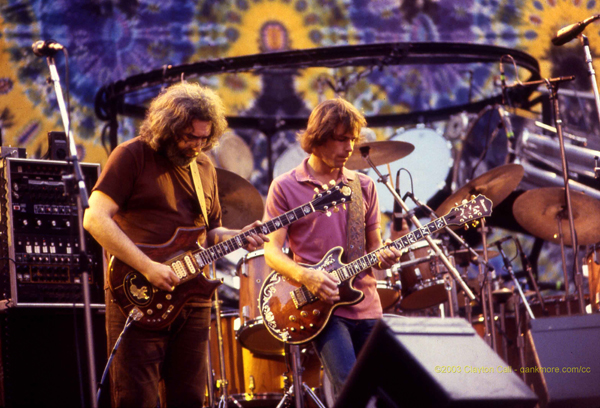Videos by American Songwriter
Andy Cabic has always been a storyteller. On his band Vetiver‘s 2006 album To Find Me Gone, he imagines himself as a century-old porter, though he also inhabits modern day San Francisco, riding the bus (“the 14 or the 49”) to meet Devendra Banhart for his weekly DJ night in the autobiographical “Down At El Rio.”
On 2009’s Tight Knit, Cabic spun tales of love and family that put the group even closer to the ’60s British folk bands they’ve long looked up to like Vashti Bunyan and Pentangle. But for Vetiver’s new album, The Errant Charm, Cabic enjoys a more singular and electronic approach than the familiar rustic wanderings of previous work.
For the new album, Cabic kept the rest of the band on hold and worked with producer Thom Monahan for two weeks in California, before convening the other musicians in an East Coast studio to add live instruments to the drum machine loops, synth lines, and song pieces he and Monahan had been collecting for The Errant Charm.
The stories on the album come naturally, with language that is more often felt than understood. That’s because Cabic let the music be his master, listening to demos and walking around his neighborhood waiting for the lyrics to emerge organically around a line or cadence.
And while The Errant Charm might be Vetiver’s most musically interesting album, the lyrics often stay close to the surface. What they do best is convey a sense, if not quite reaching the high language of the earlier albums. (Compare the Robert Hunter-esque heroic poetry and loping country rock melody of “I Know No Pardon,” with lines like “I chose the company of those who don’t need protection” and “What kind of heaven are these killers dying to win?” from To Find Me Gone.)
Instead, on The Errant Charm, Cabic crafts a breakup album that he says isn’t a breakup album. “It’d be a mistake to confuse the narrator for me,” he recently said. He’s more interested in the contrast between the summery production and the often-obscured and “bummer” lyrical content.
In a video, Cabic says the album’s title comes from a line in the song “Faint Praise” – “the errant charm soon comes undone” – that refers to a person assuming he or she has “a sense of privacy and space to themselves when in fact they share it with everybody and everybody is interested in their personal life.”
It’s hard not to read the songwriter’s personal life into “Worse For Wear,” which tells the story of a person moving on from a relationship gone south. Whether you like getting your kicks from a songwriter’s pain – Dylan once asked a reporter, and I’m paraphrasing here, how could anyone enjoy listening to Blood On The Tracks? – it’s easy to delight in the sunshine vibe of “Worse For Wear.”
“Worse For Wear”
Forget about the things she did
Her callous ways, her secrets hid
Well now you’re free, no worse for wear
To find someone who really cares
“Oh, all of that’ll feel right
Oh that’ll feel right,”
They tell me now, and it might be true
But I just can’t keep my mind off you
The tender trust my hopes betray,
Withered like an old bouquet
You and I suffered the way that young lovers will
Ardent hours, spent up but how I need you still
Only now you’re really moving on
Funny how you’ve already moved on
Captive by what could’ve been
Looking for a window in
It’s enough to break your brittle heart
But you didn’t want to take part
All happiness aside
All happiness aside
I need you now
Written by Andy Cabic
Correction: “All happiness aside” was originally quoted as “All happiness is sad.” The article was updated to reflect this change.












Leave a Reply
Only members can comment. Become a member. Already a member? Log in.